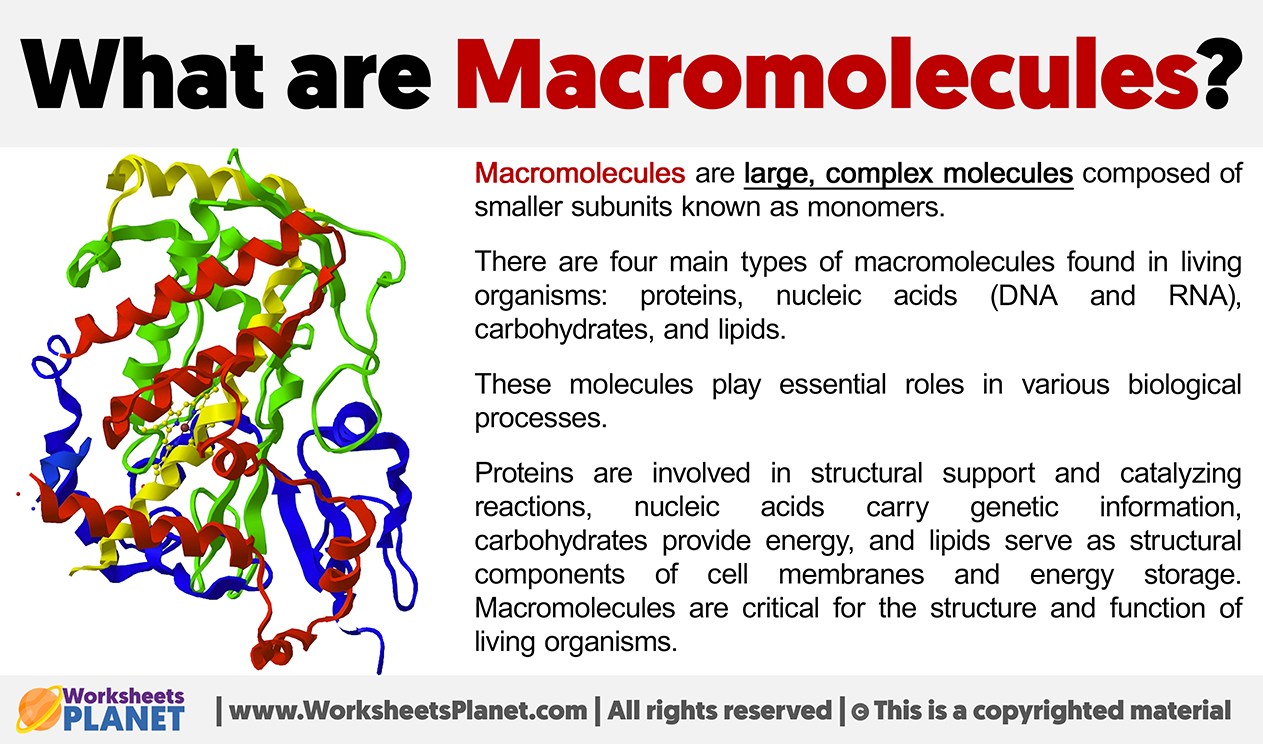Macromolecules are large, complex molecules composed of smaller subunits known as monomers. There are four main types of macromolecules found in living organisms: proteins, nucleic acids (DNA and RNA), carbohydrates, and lipids.
These molecules play essential roles in various biological processes.
- Proteins are involved in structural support and catalyzing reactions
- Nucleic acids carry genetic information
- Carbohydrates provide energy.
- Lipids serve as structural components of cell membranes and energy storage.
Macromolecules are critical for the structure and function of living organisms.


